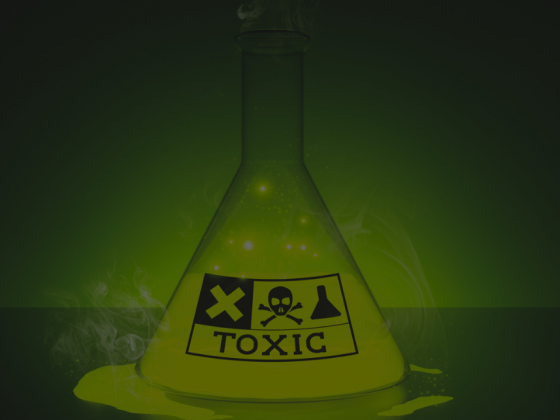
Introduction
Narcissism, as a term, has found its way into everyday language, often used interchangeably with self-absorption or vanity. However, it signifies a much more serious personality trait when it crosses over into the realm of narcissistic personality disorder. Understanding narcissistic behavior can prove to be a powerful tool, especially in the context of romantic relationships, as it can shed light on patterns of interactions that might be harmful or toxic. This article aims to explore the potential signs of dating a narcissist, further aiding in such understanding.
Understanding Narcissism
At the crux of narcissism lies a pervasive pattern of grandiosity, a deep need for admiration, and a pronounced lack of empathy. While everyone possesses a degree of narcissism, it’s the extent and manifestation of these characteristics that make them problematic.
Firstly, narcissistic personality disorder (NPD) is a legitimate mental health condition recognized by the Diagnostic and Statistical Manual of Mental Disorders (DSM-5). It’s characterized by an inflated sense of self-importance, a deep-seated need for excessive attention and admiration, troubled relationships, and a lack of empathy for others.
However, it’s crucial to differentiate between healthy self-esteem and narcissism. A person with robust self-esteem feels good about themselves and appreciates others, while a narcissist feels superior to others and usually belittles them to validate their self-worth.
Dating a narcissist can be a challenging and exhausting experience. Over time, the narcissist’s behavior can take a toll on the other partner’s self-esteem, mental health, and overall well-being. Recognizing the signs of narcissistic behavior early can help individuals protect themselves from these adverse effects.
The 13 Signs You’re Dating a Narcissist
It’s important to remember that narcissistic traits can be subtle, but by paying close attention, one can discern patterns that might be indicative of a narcissistic personality. Here are thirteen potential signs:
1. They dominate conversations: Narcissists often monopolize discussions, focusing predominantly on their own achievements, desires, and experiences. Their tendency to overemphasize their importance can make their partners feel unheard or marginalized.
2. They are overly concerned with their image: Narcissists can be excessively preoccupied with their appearance or public perception. They might spend a significant amount of time and effort maintaining an idealized image, often out of proportion to other life priorities.
3. They lack empathy towards others: A fundamental characteristic of narcissism is a lack of empathy. Narcissists may struggle to understand or acknowledge the feelings and needs of their partners, which can lead to emotional neglect or abuse.
4. They constantly need praise and admiration: Narcissists have a deep-seated need for constant admiration and validation. They often seek compliments and may react negatively or dismissively if they don’t receive the adulation they expect.
5. They exploit others without guilt or shame: Narcissists may use others to meet their own needs, without consideration for the person’s feelings or welfare. This exploitative behavior typically arises from their sense of entitlement.
6. They frequently belittle or undermine others: Narcissists often resort to belittling, criticizing, or undermining others to elevate themselves. This can be particularly damaging in a romantic relationship.
7. They react with rage or contempt if they feel slighted: Narcissists may respond disproportionately to criticism or perceived slights. They can show contempt, become aggressive, or even use the silent treatment as a form of punishment.
8. They have a sense of entitlement: Narcissists often believe they’re deserving of special treatment. They expect others, including their partners, to cater to their needs and may react angrily if they don’t.
9. They set unrealistic goals for themselves and others: Often, narcissists have grandiose fantasies about their own success and may set unattainable standards for their partners, leading to a constant feeling of falling short.
10. They are envious of others or believe others envy them: Narcissists can feel threatened by or envious of others’ accomplishments. Similarly, they often believe others are envious of them, reinforcing their inflated self-perception.
11. They struggle with maintaining healthy relationships: Due to their self-absorption and lack of empathy, narcissists often have turbulent or failed relationships. This pattern can be a sign of a narcissistic personality.
12. They disregard the feelings of others: A narcissist’s lack of empathy often results in a disregard for others’ feelings. They can be dismissive or mocking of their partners’ emotions.
13. They are manipulative and controlling: To maintain power and control, narcissists can resort to manipulative behaviors such as gaslighting, where they deny or distort reality to confuse or discredit their partners.
The Implications of these Signs
Identifying and understanding these signs is crucial, as dating a narcissist can have profound emotional consequences. When you’re in a relationship with a narcissist, the focus tends to shift towards managing their ego, and this can lead to an unhealthy dynamic where your own needs, feelings, and well-being are neglected.
1. Emotional Consequences of Dating a Narcissist:
Dating a narcissist can take an emotional toll. The narcissist’s constant need for admiration and tendency to belittle others can result in the other partner feeling invalidated or ignored. Their disregard for your feelings can also lead to emotional neglect, causing feelings of loneliness, frustration, and even depression.
2. The Impact on One’s Self-Esteem and Mental Health:
A relationship with a narcissist can be damaging to your self-esteem and mental health. The constant criticism and belittling can lead to self-doubt and a diminished sense of self-worth. Furthermore, the manipulation tactics often used by narcissists can cause confusion, anxiety, and lead to a phenomenon known as “gaslighting”, which can be psychologically damaging.
3. The Challenge of Maintaining a Balanced Relationship with a Narcissist:
Maintaining a balanced, reciprocal relationship with a narcissist is challenging. Their grandiosity, sense of entitlement, and lack of empathy often result in a one-sided relationship. They may demand constant attention and praise, while providing little emotional support in return. This can result in an exhausting and unsatisfying relationship dynamic.
Recognizing these signs and the impact they have on your well-being is the first step towards deciding how to handle your relationship with a narcissist. Awareness provides a foundation for setting boundaries, seeking professional help, and taking care of yourself, all of which will be discussed in the following section.
How to Deal with a Narcissistic Partner
Identifying that you’re in a relationship with a narcissist is a significant first step. However, figuring out how to deal with this situation can be a difficult and complicated process. Here are some strategies to consider:
Importance of Setting Boundaries:
Setting boundaries is crucial when dealing with a narcissistic partner. These can be emotional, physical, or even digital boundaries. The objective is to establish what behavior is acceptable and what isn’t, and to communicate these boundaries clearly.
Seeking Professional Help:
Professional help can be immensely beneficial. A mental health professional, such as a psychologist or counselor, can provide guidance and support during this challenging time. They can help you understand the dynamics of your relationship, develop strategies for coping, and assist with decision-making regarding the future of the relationship.
Importance of Self-Care:
Remember to prioritize self-care. Engaging in activities that make you feel good, spending time with supportive friends and family, and taking care of your physical health are all crucial. It’s important to maintain your individuality and personal well-being, even when in a relationship with a narcissist.
When and How to Consider Leaving the Relationship:
At times, leaving the relationship might be the best option for your mental and emotional health. This is a significant decision and requires careful consideration. Speak with a professional, lean on your support system, and consider your own feelings and well-being. If you decide to end the relationship, it’s vital to have a safety and support plan in place, especially if the narcissist has tendencies toward manipulation or control.
Dealing with a narcissistic partner can be challenging, but with the right tools, you can navigate this difficult situation and prioritize your well-being.
Conclusion
Narcissism, particularly when it extends into the realm of narcissistic personality disorder, can have a profound impact on relationships. The complexities associated with this personality trait often lead to one-sided, emotionally draining, and at times, toxic relationships. It’s essential to identify the signs early on, understand the implications, and learn how to manage a relationship with a narcissist.
However, as complex as these dynamics might be, it’s crucial to remember that everyone deserves respect and empathy in a relationship. When relationships are marked by constant belittling, neglect, or manipulation, it’s a sign that something is not right.
Knowledge about narcissistic behavior and its effects is the first step towards dealing with it effectively. Setting boundaries, seeking professional help, and maintaining self-care are fundamental strategies when dealing with a narcissistic partner.
Lastly, there’s no universally correct path to take when dealing with a narcissistic partner. Every situation is unique, and it’s essential to consider personal well-being and safety above all. Professional guidance can be beneficial, especially when considering making significant changes like ending the relationship.
In the end, recognizing the signs of a narcissist is not about labeling or diagnosing someone, but about understanding and managing the dynamics of the relationship and prioritizing personal mental and emotional health.




